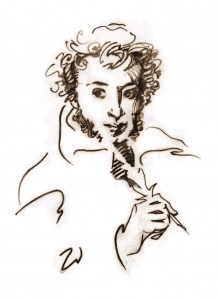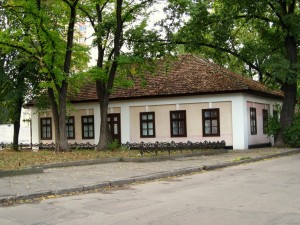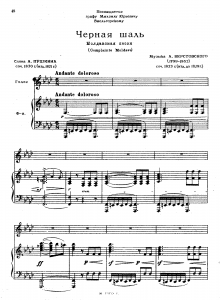Poetry in Translation (CCCLXXI), RUSSIA, Alexander PUSHKIN (1799, Moscow – 1837 St. Petersburg): “Friendship”, “Prietenie”
Alexander PUSHKIN
(1799, Moscow – 1837 St. Petersburg)
Friendship
What’s friendship? The hangover’s faction,
The gratis talk of outrage,
Exchange by vanity, inaction,
Or bitter shame of patronage.
* * * * * *
Alexandru PUŞKIN
(1799, Moscova – 1837, Petrograd)
Prietenie
Prietenia ce e? Ecou de facţiune,
O vorbă ieftină, cu spirit de ultraj,
Cocktail de vanitate şi inacţiune,
Păcatul unui mare patronaj.
Rendered in Romanian by Constantin ROMAN, London,
© 2016 Copyright Constantin ROMAN
* * * * * *
SHORT HISTORICAL BACKGROUND OF CHISINAU – the place of Pushkin’s exile between 1820 and 1823:
Since the early Middle Ages, Moldova was a Romanian Principality which paid, on and off, tribute to the Ottoman Empire. Following a Russian – Ottoman war, these lands were occupied again, at the beginning of the 19th century, to bring them under the Tsar’s administration. It remained, for a century, a province of the Russian Empire to the beginning of WWI, when Moldova was reunited with the Kingdom of Romania, in 1919. However, twenty years later, as a result of Stalin-Hitler’s pact, signed in Berlin in 1939, this province of Eastern Romania, was “granted” by Hitler to Stalin! The Romanian Foreign Minister was summoned to “Berchtesgaden” and forced to formally relinquish the province to the Soviets. This strong-arm tactics sowed the political seeds, which prompted Romania, in 1941, to declare war on Soviet Russia, as anticipated by Hitler. For a brief interlude of two years, from 1941 to 1943, Moldova was reintegrated to the Kingdom of Romania, only to be recaptured by Stalin, in 1943 and turned into a “Soviet Republic”: Romania was given 72 hours ultimatum to withdraw… Those Romanians who were too slow to leave their land and cross the new border into Romania, were sent as slave labour to the Communist gulags, to Siberia, or to Kazakhstan. After 47 dour years of Soviet Communism, from 1944 to 1991, Moldova became independent, the Latin script replaced the Russian Cyrillic characters, Russian was replaced by Romanian as the State’s official language and those survivors from the Siberian and Kazak gulags were allowed to return to their homeland. See: “20 de ani in Siberia. Amintiri din viata” (Romanian Paperback – Edition, 2011)
SHORT BIO NOTES related to Pushkin’s exile in Chişinău, the capital of Moldavia: there is a modest one-storey terrace house, situated only a few blocks away from the city centre. Here is located the “Alexander Pushkin Memorial House and Museum”, regarded as one of the city’s important cultural monuments. It is located northeast of the Central Park and is housed in a four-room cottage, where Pushkin spent three years of his exile, between 1820 and 1823. During this period Pushkin composed the following narrative poems:
• 1820 – “Ruslan and Ludmila”, Ruslan i Lyudmila (Руслан и Людмила)
• 1820–21 – “The Prisoner of the Caucasus”, Kavkazskiy plennik (Кавказский пленник)
• 1821 – “The Gabrieliad”, Gavriiliada (Гавриилиада)
• 1821–1822 – “The Robber Brothers”, Bratya razboyniki (Братья разбойники)
• 1823 – “The Fountain of Bakhchisaray”, Bakhchisaraysky fontan (Бахчисарайский фонтан)
* 1823 – “The Black Shawl”or “Moldavian Song”
• 1824 – “The Gypsies”, “Tsygany (Цыганы)”, published the year that he was in the Crimea, a poem which was prompted by the poet’s encounter with the gypsies, during his exile in Chişinău.






No Comments so far ↓
Like gas stations in rural Texas after 10 pm, comments are closed.